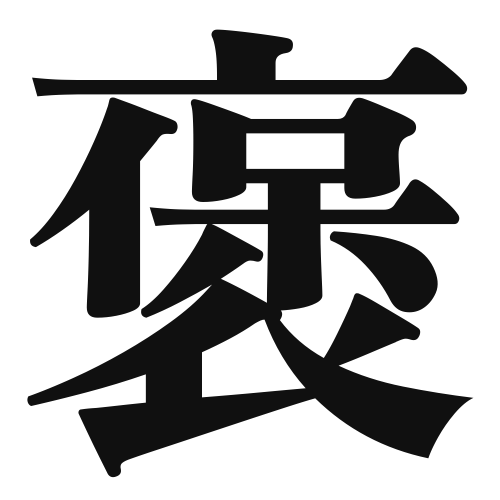1. Overview of Meaning
The kanji “褒” (hō) means “to praise” or “to commend.” It is often used in contexts where someone is being recognized for their achievements or good qualities.
2. Formation and Radical
Formation of the Kanji: The kanji “褒” is a phonetic-ideographic character (形声文字). It combines the radical for “cloth” (衣) with a phonetic component that suggests the pronunciation.
Radical: The radical of “褒” is 衣 (koromo), which relates to clothing or fabric, indicating a connection to the presentation or adornment of something, often linked to praise.
3. Examples of Usage
Common Words and Phrases: Some frequently used words that include “褒” are 褒める (homeru – to praise) and 褒賞 (hōshō – reward or commendation).
Example Sentences in Daily Conversation:
- 彼はそのプロジェクトで褒められました。 (Kare wa sono purojekuto de homeraremashita.) – He was praised for that project.
- 褒賞を受け取るのが楽しみです。 (Hōshō o uketoru no ga tanoshimi desu.) – I am looking forward to receiving the commendation.
4. Synonyms and Antonyms
Similar Kanji: A similar kanji is 賞 (shō), which also means “reward” but is more focused on the act of giving a prize or honor rather than the act of praising itself.
Opposite Kanji: An antonym is 罰 (batsu), which means “punishment,” representing the opposite of praise.
5. Cultural and Historical Background
Connection to Japanese Culture: In Japanese culture, praising others is an important social practice, often seen in educational and professional settings. The concept of “褒” is deeply embedded in the values of respect and recognition.
Proverbs and Idioms: One common saying is “褒めて伸ばす” (home te nobasu), which means “to praise and encourage growth,” highlighting the positive impact of praise on personal development.
